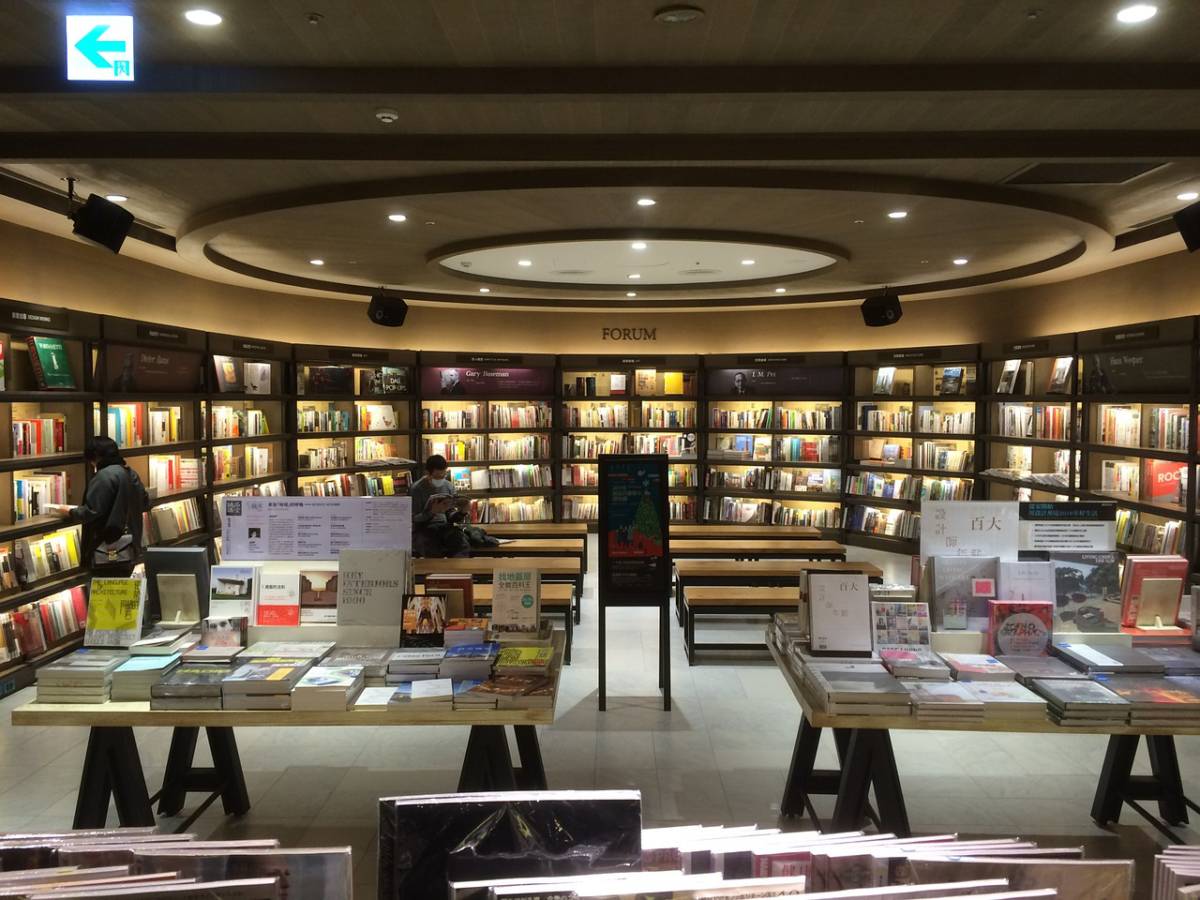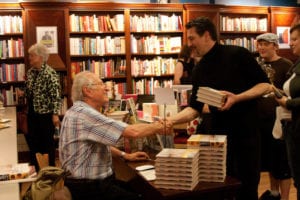 Self-published authors are sometimes ill-prepared or don’t know what to expect when they approach booksellers about selling their titles, signing events, policy, etc. To be successful in pitching their books to booksellers, self-published authors should have a sense of the resources available to booksellers, what is appealing to them, and how to approach them. Here are eight things booksellers would like self-published authors to know.
Self-published authors are sometimes ill-prepared or don’t know what to expect when they approach booksellers about selling their titles, signing events, policy, etc. To be successful in pitching their books to booksellers, self-published authors should have a sense of the resources available to booksellers, what is appealing to them, and how to approach them. Here are eight things booksellers would like self-published authors to know.
Making sure your title is available for bookstores to order is an important first step
Bookstores don’t have access to all titles, and corporate stores like Barnes and Noble can’t sell your title unless it’s in its system and available from one of its distributors. Independent bookstores are much more likely to accept copies you bring from home, but each one is different, so it’s important to do some preliminary research. The more available your book is, the easier it will be to make sales.
Before setting up a book signing, do research on how to get your title accepted into the bookstores you are considering.
Make sure your title is returnable, specifically for national bookstore chains
With literally millions of titles in publication, it makes sense that real estate in a bookstore is a high commodity. With so many titles vying for space, most bookstores are reluctant to order anything that can’t be returned, especially in the quantities required for a signing event.
If your book has already been accepted into the distribution system, ask how to make your title returnable. I’m told it’s a fairly simple process, but be aware that it isn’t a free service.
Bookstores typically don’t have a budget to promote your signing event

Roland Tanglao / CC BY 2.0
The hard truth of the matter is that bookstores are approached by countless self-published authors who rarely make enough sales at an event to justify promotional expenditures. Even promotion for New York Times best-selling authors are supported by publishers, the authors themselves (yes, even highly successful authors promote their own events), and social media. There are exceptions to this, but be prepared to handle your own advertising.
If you want people to show up, there are several things you can do. Print flyers (or even better, bookmarks) for booksellers to bag-stuff, ask if you can set up a display a few weeks early with the event info, boost ads on social media, or take out an ad in the paper. The opportunities are there and go beyond what I’ve listed. You just have to be willing to put in the effort.
Take an active role in your signing event
Most events are scheduled for high-traffic days, which makes sense because authors want to engage as many people as possible. From a sales standpoint, booksellers prefer this also. From a logistical standpoint, these days can be so busy that booksellers have a difficult time disengaging themselves from customer service long enough to give your event the attention it needs. Booksellers have the best intentions to set you up for success but don’t always have the human resources to make it happen. Therefore, the more involved you can be in preparing for and setting up your event, the better.
Arrive early and help organize your station. Anything you can bring to draw attention to your book is also helpful. I’ve seen authors show up with balloons, stuffed animals, posters, candy trays, and all other sorts of things to attract attention. The extra effort usually pays off.
Your self-published book is probably not going to be competitively priced
 In the self-publishing industry, there is a noticeable correlation between quality and price. Unfortunately, self-publishing facilities don’t have the resources to print at a high enough volume to make the cost per unit competitive. You can sacrifice quality (to a degree) for a lower price, but overall cover appeal plays a role in your book’s marketability. Traditionally published trade paperbacks usually run from $9.99 to $14.99, whereas I’ve seen self-published trade paperbacks anywhere from $15 to $30. It’s important to be aware of this disadvantage when asking people to take a chance on your title.
In the self-publishing industry, there is a noticeable correlation between quality and price. Unfortunately, self-publishing facilities don’t have the resources to print at a high enough volume to make the cost per unit competitive. You can sacrifice quality (to a degree) for a lower price, but overall cover appeal plays a role in your book’s marketability. Traditionally published trade paperbacks usually run from $9.99 to $14.99, whereas I’ve seen self-published trade paperbacks anywhere from $15 to $30. It’s important to be aware of this disadvantage when asking people to take a chance on your title.
There’s just no getting around the price/volume relationship of publishing economics, which is why so many self-published authors opt for digital publishing. The only thing you can do is consider your market strategy very carefully before going to print.
Booksellers don’t want to be hassled about your book
Save your soliciting for the customers. Booksellers know way more about what’s available to read than the average person and have already decided before they meet you whether or not they want to read your book. Talking about it with them is okay. Pestering them to read it is not. You want to leave booksellers with a general knowledge of your book’s premise, but you also want to leave them with a positive experience. Your goal shouldn’t be to sell to them but to garner a good relationship.
If you really want booksellers to read your book, provide a free copy a few months ahead of your signing. This gives employees a chance to check out the title with zero pressure and ample time to read it beforehand. This method usually gets the best response.
Content quality matters
This, I have found, is the biggest difference between traditional and self-published titles. The editing process of big publishing houses is more than just fixing grammatical errors and running spellcheck. They invest tons of time and money getting a manuscript ready for market, which is why they’re so picky. They’re only willing to financially back projects they believe will make them the most money. It all comes back to the quality of the content. If you want any chance of standing out in an industry that publishes a million titles every year, recognize that producing quality content is the best way to generate positive word-of-mouth and gain an audience.
Stephen King once said, “Read a lot and write a lot.” Study your market thoroughly. Attend seminars and workshops. Join a writing group. Acknowledge that your work is not perfect (no one’s ever is) but that hard work can make a difference.
You are not entitled to an audience
This seems to be the hardest truth for any author to learn (myself included). Just because you wrote something does not mean others are obligated to want to read it. Literally anyone can self-publish a book, but the mere act of doing so doesn’t guarantee you readers. It takes a lot of market awareness and research to produce something with mass appeal. Even if you’ve done your homework, attended seminars, and revised until the red ink ran dry, it still doesn’t entitle you to an audience.
Venture into the world of self-publishing with a humble approach and a quality product, and rely on positive word-of-mouth and hard work to generate an audience. A sense of entitlement will only hurt your goal.










This article seems somewhat out of date, both re the amount of proofreading, etc. in traditionally published books these days and especially re the pricing of self-published paperbacks. I’ve had no trouble pricing my paperbacks within the range mentioned. The only book I’ve priced above $15 is a nonfiction reference work, which I affectionately call “the brick” due to its 600-plus page length, and I can make money from it at $23.99.
I have to agree with Karen A. Wyle. This article seems out-of-date regarding the prices of self-published paperbacks considering that there is little financial investment if you use print-on-demand services.
However, I should add, there is some very valuable advice here that I will definitely put to use when I pitch my work to booksellers. Thank you, Ms. Hawkes.